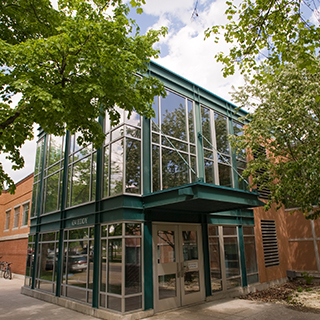Resources for Faculty and Staff
Curry Health Center offers an opportunity for Academic and other University departments to meet with a Curry Health Center Counselor in small groups to have thoughtful, intimate discussion about student mental health. In a time of unprecedented local, national, and world-wide stress and challenge, concerns for student (and educator’s) mental health has never been more important. Many faculty and staff have specific questions or concerns about what they have been observing and experiencing with students, specific to student mental health – stress, anxiety, depression, disruptions in the classroom, struggles with class performance, serious psychological challenges. These Fireside Chats give folks a chance to have a discussion with a licensed clinician – an opportunity to openly process what is happening as well as to strategize about specific situations in a considerate, safe, and caring atmosphere. These chats are not lecture based and the confidentiality of students will be strictly observed.
Please contact Erinn Guzik, LCSW, the Director of Counseling, at 243-4712 or erinn.guzik@mso.umt.edu
When to refer:
- If you are concerned that the student is self-destructive, suicidal, dangerous to others, severely depressed, or out of contact with reality.
- If you feel overwhelmed or burdened by the student and/or the student's problem.
- If you have had contact with the student on several occasions and it appears that the student is "stuck," unable to find a way to feel better or to change things in his/her life.
- If the student has experienced a number of problems or symptoms over an extended period of time.
- Whenever a student's behavior is perceived as threatening or disruptive.
Some of the specific issues for which counseling may be helpful include:
- Depression and/or suicidal thoughts
- Interpersonal/social problems
- Decision-making
- Stress and anxiety
- Low Self Esteem
- Breakups
- Identity Problems
- Difficulty concentrating
- Drug or alcohol abuse
- Self-confidence or identity issues
- Death of a family member or close friend
- Excessive weight loss or gain, or eating problem
- Disclosure of sexual or relationship violence (call Student Advocacy Resource Center 243- 6559)
- Deliberate self-harm
How to refer:
If you are concerned about a student or situation but are not sure how to proceed, call Counseling Services at extension 4712. A counselor will return your call and help you determine an appropriate course of action. Consultations are a regular part of our services and are frequently used by concerned parents and roommates as well as faculty and staff.
It is helpful to encourage the student to call or come in to make an appointment. Give the student the Counseling Services phone number – 406-243-4712.
If the student is hesitant, offer to call the receptionist at Counseling Services for an appointment while the student is in your office. If the situation is an emergency, call Counseling Services and tell the receptionist that "the student needs an appointment immediately" when you call.
If possible, speak with a counselor at Counseling Services before the student is seen to inform her/him of the reasons you are referring the student. Sometimes it may be helpful or necessary to walk the student to Counseling Services (west end of the Curry Health Center, downstairs).
Faculty/Staff Cheat Sheet for Students with Mental Health & Substance Abuse Concerns
- Be aware of student behaviors and signs of concern (e.g. anxiety, depression, talk of suicide)
- Consult with Counseling Services for guidance and support prior to talking with or meeting with a student. (243-4711)
- Meet with student about your concern if this makes sense (reminder: goal is connection and referral and not to counsel student yourself)
- Active listening and reflecting
- Avoid judgment
- Instill hope
- Get student to appropriate resource/offices on campus for support
- Be direct about your concerns:
- You are looking overwhelmed. I wonder if you are feeling more anxious than usual.
- It is common for people to think about harming themselves and suicide, has this come up for you?
- Let students know about resources:
- Counseling Services: 406-243-4711
- 24-hour crisis line: 1-800-273-TALK (8255)
- TEXT crisis line: text MT to 741-741
- SARC: 24-hour Support Line: 406-243-6559
- Medical Services: 406-243-4330
- Wellness: 406-243-2809
- Office of Disability Equity: 406-243-2243
- Career Services: 406-243-2022
- Office for Student Success: 406-243-2800
- Financial Education Program: 406-243-6016
- UM Housing: 406-243-2611
- Behavioral Intervention Team (BIT) http://www.umt.edu/student-affairs/BIT-Behavioral%20Intervention%20Team/default.php
- Dean of Students: 406-243-6413
- UM Police Department: 406-243-4000 (emergency)/406-243-6131 (non-emergency)
- Continue to consult with Counseling Services or other offices (e.g. Dean of Students, UM Housing, BIT) if you continue to be concerned.
- Follow-up with the student to check on referral.
Important:
- If the student is in imminent danger or at risk to self or others:
- Call 911/UM Police Department
- Be prepared: develop a plan with your colleagues on how to get students to Counseling Services if they are being disruptive in your class or work-setting. Remember, Counseling Services provides same day/next day urgent counseling appointments M-F.
- If a student refuses help:
- Consult with Counseling Services
- Consult with colleagues/Dean
- Continue to encourage student
- Seek out other involvement (e.g. BIT, Dean of Students)
- Curry Health counselors also do outreach presentations for entire classes on topics such as stress & time management, goal setting, managing unhealthy thoughts, and effective communication skills. Think about this for your class in lieu of canceling class.
